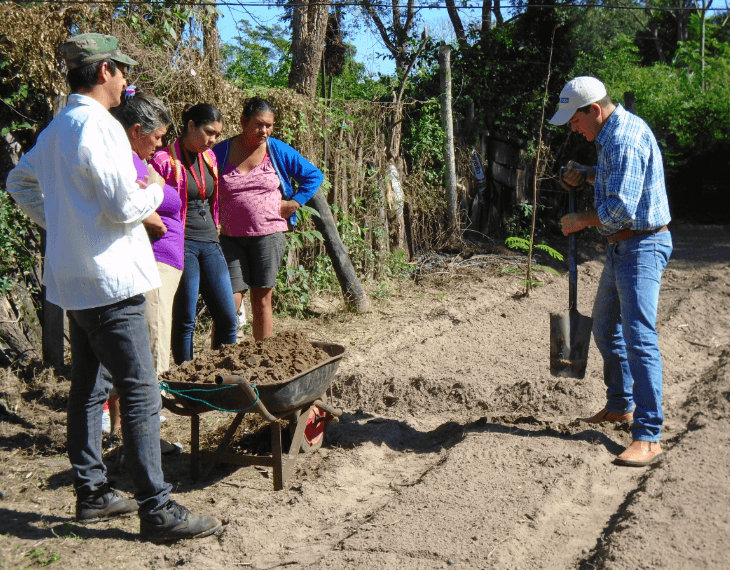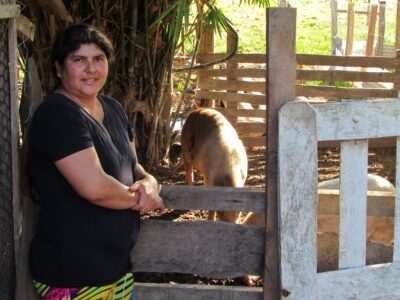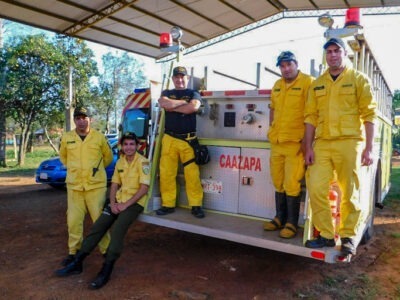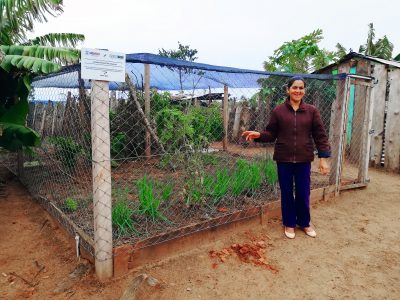
Background Narrative
Severe climate variances have impacted Paraguay in recent years, displacing thousands of people and affecting livelihoods in both rural and urban areas. The Paraguay National Atlas of Disaster Risks 2018 names cyclical flooding, severe storms, forest fires, and drought among the most significant adverse events in the country. The Central Department, the most populated department in the country with over two million residing in the peri-urban and rural municipalities surrounding the country’s capital of Asunción, is one of the most vulnerable.
Due to its location in a cyclically flooded basin where two of the country’s rivers–the Paraguay and the Pilcomayo–intersect, communities are continuously affected by cyclical flooding that severely distresses their livelihoods and leaves thousands of victims. By the end of 2018, the Paraguay river had risen to a height of six meters, displacing 7,439 families.
The Disaster Risk Reduction in Central Department (DRRCD) program, funded by USAID and the Office for U.S Foreign Disaster Assistance (OFDA), had been created to help build risk management capacity, increase food security, and promote protection in target areas using replicable models and methodologies that address climate-related shocks and stresses.
Project Objectives
- Risk Management Policy and Practice: Provide the national government and local actors with tools and capacities to proactively monitor and manage risks
- Agriculture and Food Security: Increase sustainable food production for households vulnerable to cyclical climatic events
- Protection: Promote individual and collective resilience to cope with climate-related disasters and help restore social cohesion
Project Activities and Approaches
- Improved national disaster risk management institutional capacity through the strengthening of community, municipal, and departmental risk management and reduction organizations through vertical linkages to these entities and providing technical assistance and training at each level
- Focused on 8-10 target communities that are most vulnerable in the municipalities of Limpio and Villeta, implementing activities to reduce socioeconomic vulnerabilities to climate-related disasters
- Raised awareness and sensitivity regarding gender, age, ethnicity, disability and high risk populations, identifying their barriers to participation and focusing on effective methods of inclusion
- Collaborated with public and private stakeholders in designing and testing new technologies to help local communities respond to and recover from disaster-related risks affecting their food security and livelihoods.
Project Results
- DRRCD has delivered 450 (390 urban and 60 rural) gardens to communities in Limpio and Villeta.
- 1,622 people have been trained in RM principles, first aid and search and rescue techniques).
- Households reached 10 months of food self-sufficiency, 250% higher than initial project targets.
- 2,237 people benefitted from improved agricultural production and food security activities, 125% higher than the initial project targets.
- 101 households (131% increase) and 2,085 livestock (208%) benefitted from DRRCD’s climate resilience of poultry and swine production.
- 297 people benefitted from DRRCD’s activities that strengthened the resiliency of fisherfolk families (165% increase) and families achieved a 141% increase in terms of kilograms of aquatic resources harvested.
- Six DecidoSer (I Decide To Be) workshops raised awareness and changed perceptions regarding gender norms, which trained 125 community leaders who then replicated these in their own communities, thus reaching 212 participants and continued these important conversations via private messaging groups.
- 301 individuals gained social protection skills via workshops in which eight government institutions participated.
- DRRCD issued in-kind grants for 50 mobile chicken coops and 180 fishing kits.
Project Videos
Access the Riesgo y Liderazgo [Risk & Leadership] video here, published January 2022.
Access the Seguridad Alimentaria [Food Security] video here, published January 2022.
Funder: USAID Bureau for Humanitarian Assistance
Project Director: Rebekah Bakewicz, rbakewicz@acdivoca.org

Project Specialist: Abraham Cruz, acruz@acdivoca.org, Luisa Beltran Rey, LBeltranRey@acdivoca.org








